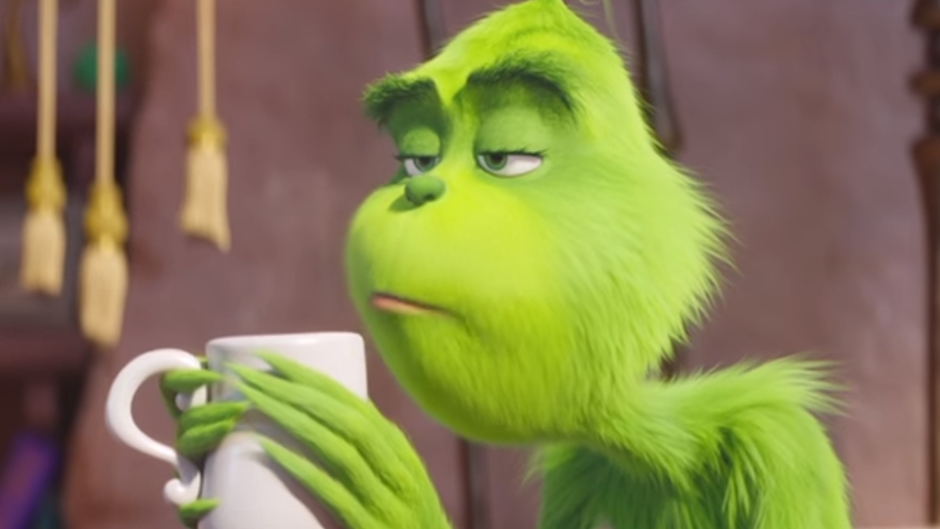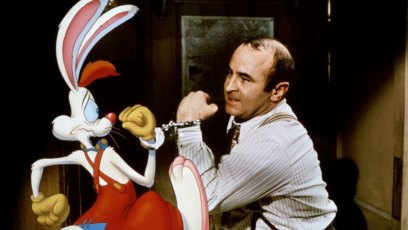
Benedict Cumberbatch Goes From Dr. Strange To Dr. Seuss In ‘The Grinch’
It seems that Benedict Cumberbatch has gone from superhero Doctor Strange to Dr. Seuss in the new animated adaptation of How the Grinch Stole Christmas, which has been simply retitled The Grinch. It’s based on the book that was published in 1957, first adapted as a half-hour animated Christmas special in 1966, and made into a 2000 live-action film with Jim Carrey in the lead role. Whereas those versions tried to stay as close to the book as possible, the new film is going in some different directions.
Here’s how Universal describes the new take: “The Grinch lives on Mt. Crumpet with only his loyal dog, Max, for company. Isolated inside a cave he has rigged with inventions and contraptions to meet his day-to-day needs, the Grinch only sees his neighbors when he must venture into Whoville for groceries. But each year at Christmas, the Whos disrupt his solitude with their increasingly bigger, brighter, and louder celebrations. The Grinch realizes there is only one way for him to gain some peace and quiet: he must steal Christmas. To do so, he decides he will pose as Santa Claus on Christmas Eve, even going so far as to trap a lackadaisical reindeer named Fred to pull his sleigh. Meanwhile, down in Whoville, Cindy-Lou Who (voiced by Cameron Seely of The Greatest Showman) — a young girl overflowing with holiday cheer — plots with her gang of friends to trap Santa Claus as he makes his Christmas Eve rounds so that she can ask him for help for her overworked single mother, Donna Who (Rashida Jones). As Christmas approaches, however, Cindy-Lou’s altruistic plan threatens to collide with the Grinch’s more nefarious one. Will joy and optimism win out over grumpiness and cynicism?”
We’re going to go out on a ledge here and say, yes.
“At the core of the story is a character who was emotionally wounded as a child,” says Illumination Entertainment’s CEO, Chris Meledandri. “He has placed himself on a quest to eliminate the joy of others because he himself has been left out of feeling that joy. It takes the most innocent and optimistic character imaginable — in this case, Cindy-Lou Who — to re-engage him in life, to an openness to connecting with other characters, to believing in good.”
The challenge — as it usually is in stories like this — was finding the right actor to voice the central character. Says Chris, “We wanted to cast someone who was felt would give the film immediate credibility; someone who, the minute an audience heard who we had cast, would reflect the ambition and substance of the film. We didn’t know if Benedict Cumberbatch would be interested in the role, but once we started to listen to his voice while looking at images of the Grinch, we realized he would absolutely give us a distinctive version of the Grinch. A version that had a lot of humanity, but could also find the comedic, wicked side.”
Benedict, who had been so good as Doctor Stephen Strange in May’s Avengers: Infinity War, explains that there were two things that drew him towards this film. The first was the fact that it was being produced by Illumination Entertainment, the company behind the Despicable Me and Minions franchises, as well as The Secret Life of Pets and Sing.
“Their stable is filled to the rafters with fantastic films, and the movies are witty, smart, moving, and there’s goodness in them,” he says. “With this film, they had great reverence for the original book, which I did, too. And they’re just great to collaborate with. It was also important to me that we told the story of someone who had a reason for his behavior, before his conversion. Once you understand why Christmas is painful for him, you kind of root for him a little.
“At the same time,” Benedict adds, “I think everyone gets a vicarious thrill out of how the Grinch behaves. The curmudgeonliness of the guy. He’s funny, and hopefully, that is what’s going to be memorable about this Grinch. He’s very witty and he’s self-aware. His heart may be two sizes too small, but there’s a very strong beating heart to this film.”
The Grinch will open in theatres on Nov. 9.








































